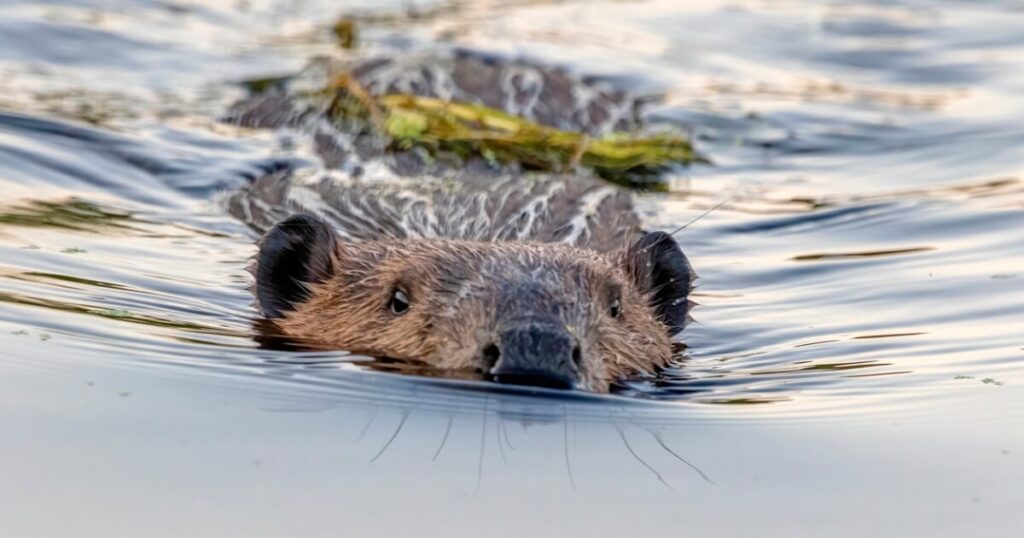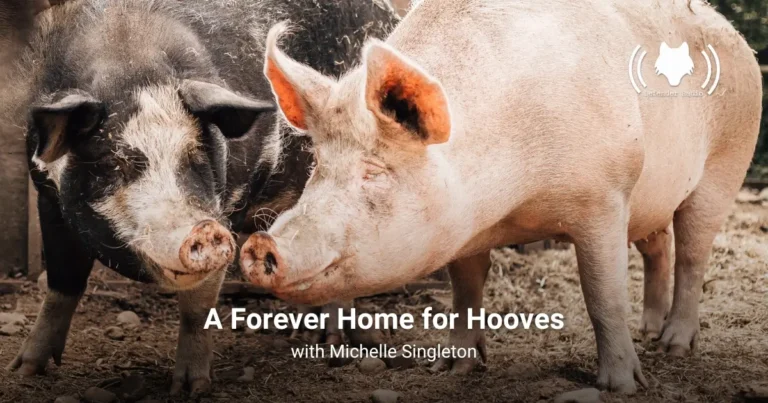
Photo by jamesvancouver / Getty Images
The following open letter was sent to British Columbia’s Minister of Forests, Bruce Ralston, and Minister of Water, Land and Resource Stewardship, Nathan Cullen, on September 13, 2023.
Open Letter – Beavers can help fight the climate crisis: prioritize their protection and end commercial trapping
Dear Minister Bruce Ralston and Minister Nathan Cullen,
British Columbia has experienced devastating fires and droughts this year that have significantly impacted citizens, habitats, and wildlife. As the government works to mitigate the risk of extreme weather events due to the climate crisis, there is a need for nature-based solutions to help the province become more resilient against future emergencies. One species in particular is instrumental in the fight against climate change: the beaver.
As keystone species, beavers play critical roles in the ecosystem and create thriving, riparian habitats across the province. These rich wetlands store water during droughts and are resilient against forest fires. Beavers also increase biodiversity, minimize flood risks, increase water quality, and sequester carbon. These animals are being recognized across North America for their ecological benefits. For example, the State of California saw a policy shift this year that emphasizes the importance of beavers for climate change resilience, habitat restoration, and conservation.
The ecological benefits of beavers are well-documented in scientific research, but these benefits are undermined by the commercial trapping licensing regime of the Government of British Columbia. Beavers are trapped for commercial and recreational purposes every year in the province. According to government data, 1,684 beavers were killed by licensed trappers in the 2022-2023 trapping season. The B.C. government receives a $0.46 royalty for each beaver killed, amounting to $774.64 in beaver royalties last year. Commercial trapping is not an economic driver, and it should be clear that the value of a beaver alive on the land is incomparable to the forty-six cents that the province receives from a royalty. A peer-reviewed study has valued beavers’ environmental services to be in the hundreds of millions of dollars each year.
After a devastating year of wildfire and droughts, it is critical that beavers remain on the landscape to restore habitats and help mitigate against future crises. The province needs to embrace beavers in its fight against climate change and shed an outdated worldview that views these fur-bearing animals through the commercial lens of their pelts.
Ahead of the 2023 trapping season, we are calling on the province to prioritize beaver coexistence and prohibit the commercial and recreational trapping of beavers.
As ecosystem engineers, beavers require protection and support from the province. A key first step is to bring an immediate end to the commercial and recreational trapping of beavers. Second, promotion and support for humane, non-lethal methods for beaver management needs to be prioritized. There are evidence-based methods such as flow devices that landowners, municipalities, and government agencies can adopt to successfully coexist with beavers instead of resorting to lethal approaches. This keeps more beavers on the land, providing cascading benefits to numerous plant and animal species and the broader ecosystem.
In the midst of a dual biodiversity and climate crisis, beavers are proven, nature-based solutions that can help the province navigate an uncertain future. The province urgently needs to act to put an end to the frivolous killing of beavers this winter. Will the province proceed with an outdated status quo and collect royalties from beaver pelts destined for luxury fashion fur markets, or will it shift its approach to recognize the ecological and climate benefits that beavers provide?
Working with your colleagues in the Ministry of Environment and Climate Change Strategy and the Ministry of Emergency Management and Climate Readiness, we are imploring the province to announce protections for beavers ahead of the 2023 trapping season and recognize the important role that beavers have in British Columbia.
For a comprehensive listing of scientific research related to the beaver and climate change, visit: https://www.beaverinstitute.org/library_category/climate-change/
Sincerely,
Aaron Hofman
Director of Advocacy and Policy
The Fur-Bearers
Take Action!
Use the one-click form below to send a letter to provincial ministers, calling for a prohibition on the commercial and recreational trapping of beavers and restrictions for all other species of fur-bearing animals. The form below requires your mailing address to ensure accuracy of connecting to the correct MLA for British Columbia residents.
If you are not a Canadian resident, you can email Minister of Forests Bruce Ralston (FOR.Minister@gov.bc.ca) and Minister of Water, Land and Resource Stewardship Nathan Cullen (WLRS.Minister@gov.bc.ca).
